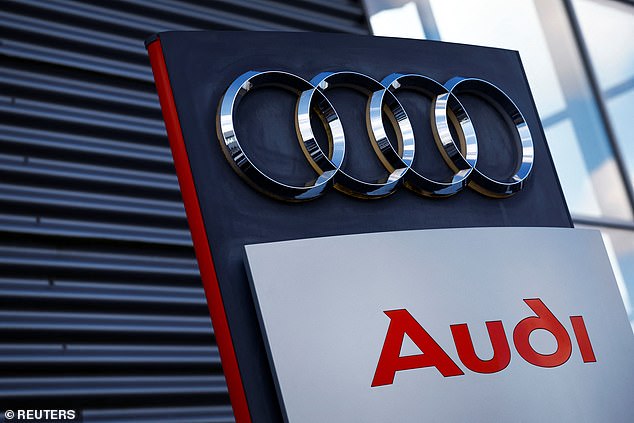Audi plans to reduce up to 7,500 positions. Germany By 2029, as the luxury automaker joins other players in the European automotive sector in cutting expenses.
On Monday, the Volkswagen-owned company unveiled new cost-cutting initiatives aimed at saving the corporation approximately 1 billion euros (£842.5 million) annually over the coming years.
Audi stated, "The economic environment is growing more challenging, with intense competition and political instabilities posing significant difficulties for the company."
Globally weak demand has affected the electric vehicle sector, and in November, the head of Ford’s UK division cautioned that Britain’s automobile industry is facing a crisis due to inadequate demand.
The company, based in the Bavarian town of Ingolstadt, stated that it would be injecting a total of 8 billion euros (£6.7 billion) into its German facilities over the coming four years.
The luxury automaker intends to introduce a new affordable electric vehicle at its facility in Ingolstadt. Additionally, they are contemplating producing another model at their second location within Germany, situated in Neckarsulm. This move serves as a reassuring gesture for labor representatives in Germany who were concerned about manufacturers choosing to manufacture electric vehicles in more cost-effective nations.
Gernot Döllner, who leads Audi, stated: "We are making sure that Ingolstadt and Neckarsulm are well-prepared to handle the tough shift towards electric vehicles with strength and adaptability."
'Audi needs to enhance its speed, flexibility, and efficiency. It’s evident that these changes won’t happen without making some staffing modifications. We will align the personnel actions with the required scale of transformation.'



The reductions at Audi have led to impending layoffs within the Volkswagen Group totaling nearly 48,000 employees.
It follows Volkswagen’s recent implementation of a cost-reduction initiative that includes approximately 35,000 layoffs.
Porsche, which is part of the Volkswagen Group, intends to reduce its workforce by 3,900 positions, whereas its software division, Cariad, targets cutting approximately 1,600 roles.
In recent times, the Audi brand has struggled, seeing its operating margin plummet to 4.5% during the initial nine-month span of 2024 from 7% over the equivalent timeframe the prior year. This decline stems primarily from sluggish sales within crucial market regions along with expenses associated with shutting down operations at its underperforming facility in Brussels.
Since 2019, Audi has reduced approximately 9,500 manufacturing positions, a step they claimed would release several billion euros to support their transition to electric vehicles and enhance profit margins to between 9% and 11%.
Last month, Audi's factory in Brussels ceased operations permanently, resulting in job losses for 3,000 workers.
The Audi plant was dubbed the 'birthplace' of the German automaker's electric powertrain.
Initially, Audi announced its plans for restructuring the plant in July. This was followed by rumors suggesting they might halt production earlier than planned, which led to significant protests over the subsequent months.


The company cited multiple reasons for shutting down the Brussels facility, which is the biggest job provider in Belgium’s capital city.
In 2018, the firm transitioned to manufacturing electric vehicles following seven decades of producing combustion engines.
However, it indicated that a worldwide decrease in demand for luxury electric sports utility vehicles (SUVs) had negatively impacted sales of its Q8 e-tron, which was the primary focus of the website.
The report pointed out longstanding structural problems at the previous Volkswagen plant, mentioning that it grappled with elevated expenses related to logistics and manufacturing processes.
Employees at the location initiated an extended strike in an attempt to avoid the shutdown, with several accusing Audi of delaying the shift towards electrification and subsequently concentrating on an unaffordably pricey vehicle.
Additionally this month, the major Czech automobile manufacturer Skoda revealed plans to implement significant reductions to stay competitive amid the costly electric vehicle transition.
Klaus Zellmer, the CEO of Skoda, stated to Automobilwoche, a German automotive publication, that workforce reductions will happen due to normal turnover.
He stated that adding another battery electric vehicle would benefit Skoda positively, and the Octavia has the potential to become a best-seller.
Read more